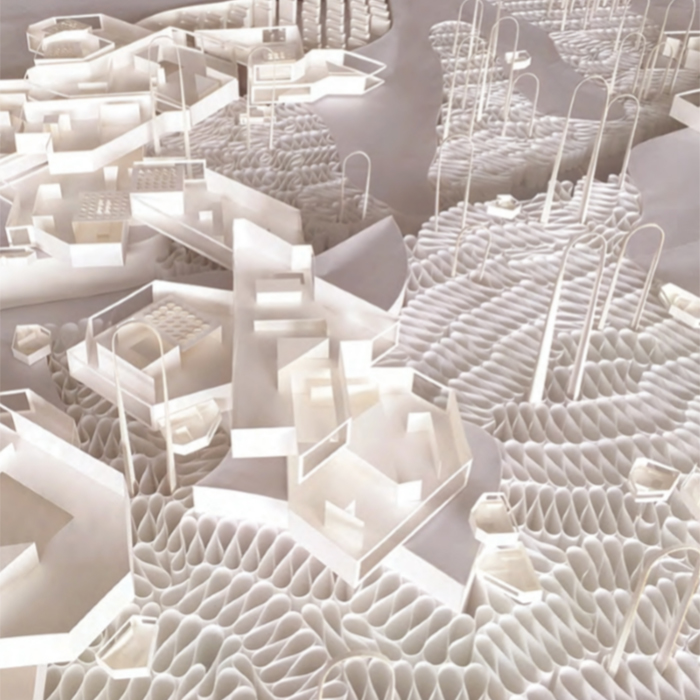Open scoring in architecture
Yeoryia Manolopoulou, University College London
Awards 澳门王中王 President's Awards for Research 2020
Category Design and Technical

This project draws on research in chance-aided design, expanding the field of inquiry from the individual to the collective. It focuses on the complex cognitive and productive possibilities that emerge within a group of designers who welcome plurality and performance in their practice via the use of an architectural score. Scores use textual, pictorial or numeric notations to describe and structure a process that occurs over time. Whilst linear scores specify an ordered sequence of events, open scores are less-hierarchical and can allow participants to invent and adapt the units and relations of an ensemble temporally and spatially. What is the creative and social potential of the score in architectural practice and pedagogy? Through an examination of an architectural score and workshop that I developed for the Universit茅 du Qu茅bec 脿 Montr茅al, named Lattice, and an exploration of the ideas underpinning it, I will show that one of the advantages of open scoring in architecture is the way in which it encourages both autonomy and collaboration, increasing the range of ideas, experiences and opportunities available to designers. The work invents and proposes a pedagogic method that grounds design on a condition of social experience and shared authorship. By foregrounding the process rather than the outcome in architectural design; by opening up this process to a social embodiment of time between actors, materials and tools; and by deliberately acknowledging its production within a collective, open scoring in architecture has the capacity to fundamentally change the ways in which architecture is taught and practiced as a social activity and understood as a social artefact.
